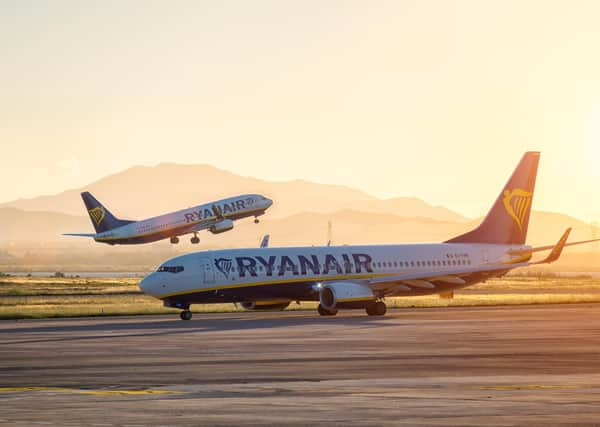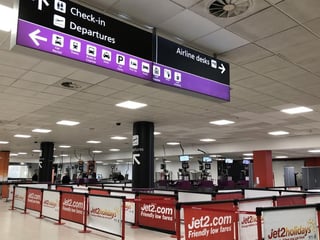Coronavirus: A unique chance to ask ourselves whether flying is necessary – Alastair Dalton


Aviation has suffered more than its fair share of turbulence over the last two decades – and now it is being brought down to earth with a jolt, perhaps harder than any before.
Flights were grounded in the aftermath of the 9/11 attacks in 2001, then again after another terrorism scare in 2006 that led to the liquids ban, and again following the Icelandic volcano eruption four years later.
Advertisement
Hide AdAdvertisement
Hide AdRunning an airline has been described to be the quickest way to lose a fortune at the best of times, and beset with so many other external factors, like bad weather and unstable oil prices, it’s not hard to see why.
Economic slumps have claimed many an airline victim, particularly during the recession of 2008, and again over the last year, with familiar names like Thomas Cook, Monarch and now Flybe going to the wall.
But the Covid-19 outbreak is different, altogether on a different scale to past turmoils.
During previous episodes, Ryanair, Europe’s biggest short-haul airline, has used colourful language to claim that only the strong – like itself – will survive, with chief executive Michael O’Leary talking of a “bloodbath” of the weak. Then, on Wednesday, Ryanair itself announced it would cut flights by 80 per cent then cease virtually all flying within days.
Many other airlines are likely to do the same in the face of collapsing demand and tightening official restrictions on travel.
Scottish airports are becoming aircraft storage areas, with British Airways and Virgin Atlantic the first to park planes on the Glasgow and Prestwick Tarmac.
All this will have a potentially devastating impact on the industry, from air crew to baggage handlers and the many associated businesses that make airports mini cities. That should not be underestimated.
However, while the future shape of aviation cannot yet be known, the coronavirus pandemic provides a unique opportunity to assess how it could – or should – look.
Advertisement
Hide AdAdvertisement
Hide AdAfter every previous crisis I’ve described, despite the knee-jerk doom-mongers, the industry has bounced back and resumed its seemingly inexorable long-term upwards trajectory. There’s no reason to think this time will be any different.
However, if we’re faced with a more prolonged shutdown than before, it should be cause to consider whether that’s a positive prospect.
There may be a wholesale shake-up of the industry, with some airlines, and perhaps even a few airports, disappearing.
While most of us are on the ground, that could be the chance to assess how much flying we should all be doing in the future.
Of course, on many international routes there is no choice, but the collapse of Flybe throws into question the UK route network.
Was it a sign that overcapacity – too many flights – has made the scale of flying unviable both economically and environmentally?
The virus, self-isolation and social distancing will change the way most of us work, like video conferencing rather than travelling to meetings, which I used several times yesterday.
Reducing demand for some types of air travel is not necessarily a bad thing if it cuts emissions, as well as removing the stress and time spent in transit. Perhaps, as a start, any major shake-up of the industry will see the end of ‘bargain’ fares, so people who really want or need to fly pay more like the true cost of their choice of travel?
Comments
Want to join the conversation? Please or to comment on this article.
